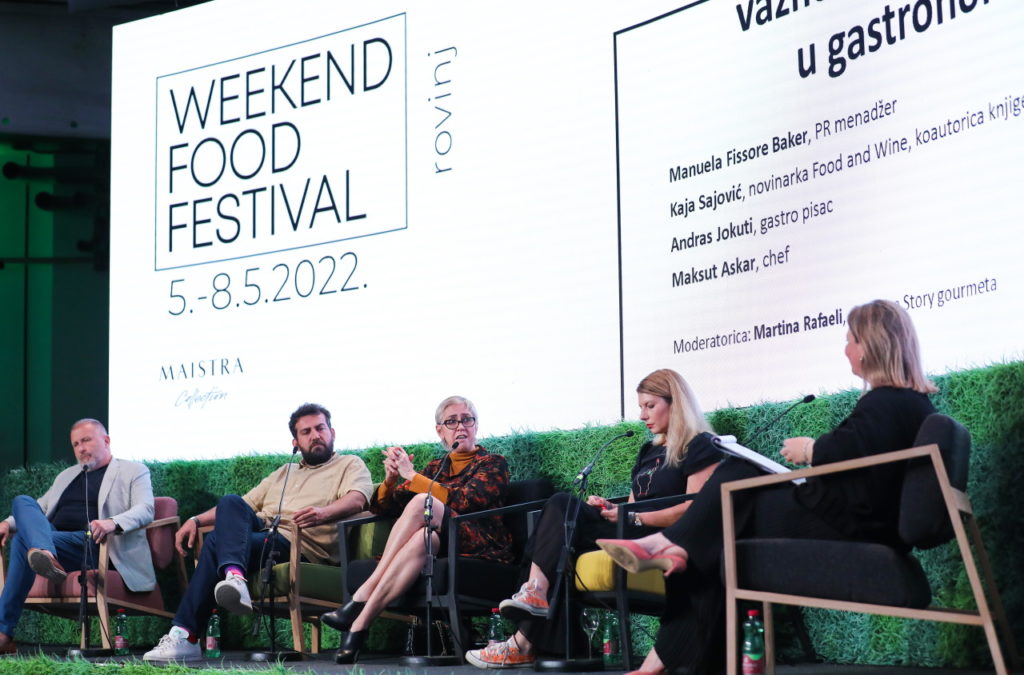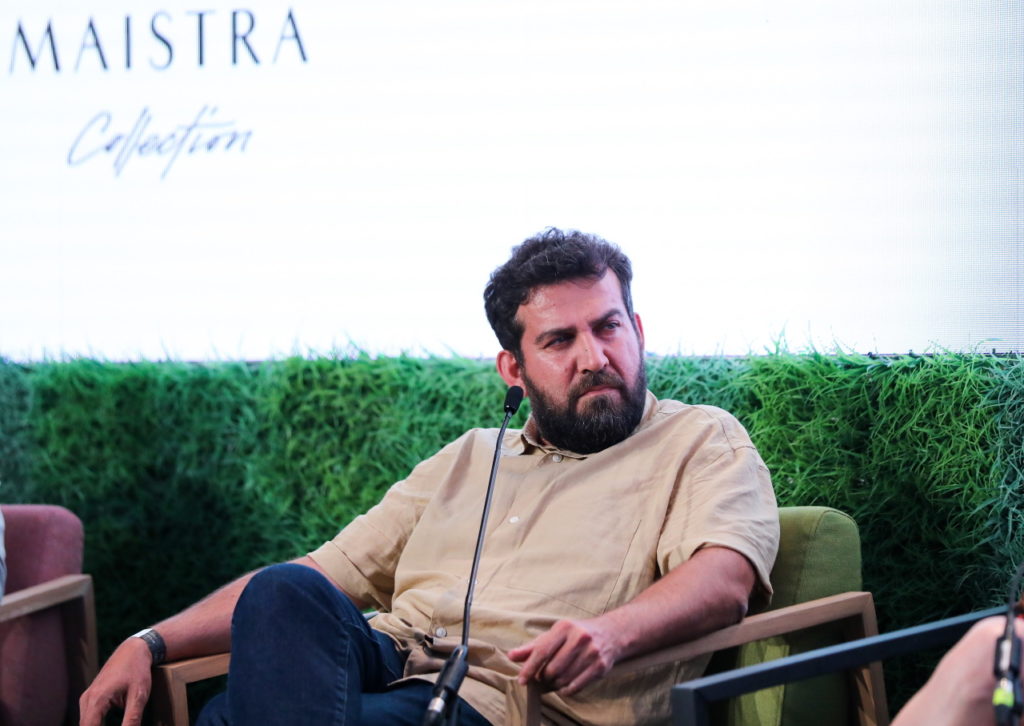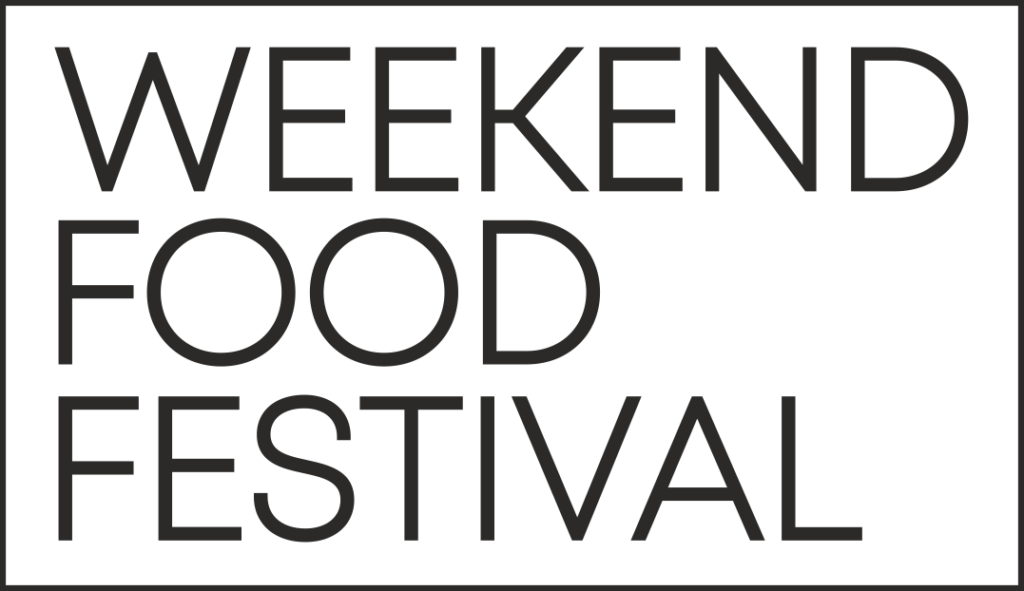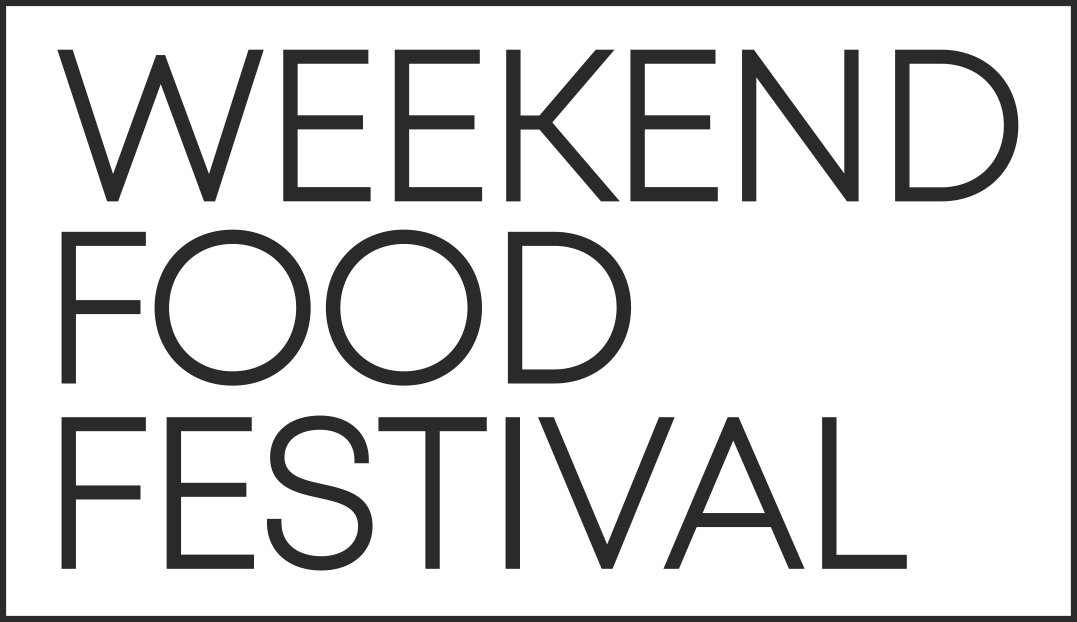The last panel of the first day of the Weekend Food Festival hosted some of the greatest experts in the culinary media scene, as well as one of the best chefs in the world. Maksut Askar, culinary virtuoso and chef at Istanbul’s Neolokal restaurant, world-famous PR manager of many chefs Manuela Fissore, Hungarian food writer Andras Jokuti, and Slovenian journalist and co-author of Sun and Rain Kaja Sajović, discussed the importance of PR and media in gastronomy, under the moderation of Martina Rafaeli, editor of the Story Gourmet magazine.

Undoubtedly, a strong will, talent and effort are at the core of successful culinary stories, but what if that just isn’t enough? Globalization and digitalization have allowed us to hear news from the other side of the planet in an instant or to visit many places virtually, but they have also contributed to information saturation. Media and PR are an important segment of the culinary industry that can help develop, but also destroy, a successful restaurant story. What the panelists confirmed was the fact that communication is much faster today. In the golden age of the press, the media decided where to send journalists and whom to pay attention to, but today, when most communication takes place through social networks, PR is becoming increasingly important because it allows key messages to be communicated to target audiences. Journalists and restaurant guests today do not just want to eat well, but also experience whole cultures and communities.
“For me, PR is about communicating experiences and creating a network of people who have similar interests. This is something that takes time. Some people are lucky and they quickly become stars, but as a rule, popularity does not develop overnight. Trends spill over beyond borders, and some chefs have a loyal local fanbase but a very weak international presence. It is in such cases that a lot can be achieved through good communication. The secret is to highlight and communicate a chef’s specific qualities and diversity,” revealed Manuela Fissore, the PR managers of culinary stars such as Ana Roš, Enrico Crippa and Gaggan Anand.
In 2022, social media is so influential that we can safely say that if something hasn’t been posted online, we can’t be sure it really happened. But it is precisely in an environment saturated with competition that good PR comes to the fore and can spread a good story to a hitherto unimaginably large audience. “Good PR today goes beyond the announcement itself. It must give journalists the opportunity to tell a deeper and more authentic story of a chef or a restaurant,” said Andras Jokuti. “Sometimes you need to know to set limits. We don’t always have to serve the whole story to audiences. PR also helps in this regard because you don’t want to bother the audience. Good PR not only knows how to follow trends, but also defines them and presents them to a global audience,” concluded Jokuti.
Maksut Askar, a renowned Turkish chef at the Neolokal restaurant in the heart of the SALT Galata Museum in Istanbul, shared his experiences on the popular TV channel 24Kitchen, but also with PR and the media in general. “The show certainly helped promote my restaurant, but I really wanted to take the opportunity to tell my story to people. Every chef has their own story, but they don’t necessarily have to be adept at communication. Chefs need a bridge between the audience and what they want to tell them—and that’s where PR comes into play. If I don’t know how to communicate, I need someone who can do it for me. And it’s not just about communicating with customers. We need to find ways to communicate with other members of the industry in order to achieve collaborations which can push the boundaries of gastronomy. Chefs work hard and often do not have time to communicate with various audiences. Working with consultants is extremely useful if you want others to know what you are doing and you want to present it to a global audience,” said Askar.

New models of communication and changes in the media’s approach to gastronomy have already greatly affected the industry, but some trends are still present. “Critics in the food industry are disappearing a bit. When I write, I try to find topics that resonate with the audience. But negative texts and click-bait titles bring significantly more readability than positive stories. However, it is necessary to be based on traditional and relaxed food, and not focus only on fine dining. Journalists want an experience, not another mediocre fine dining restaurant,” said Kaja Sajović.
The world of media and public relations are constantly changing, and what distinguishes good from bad communication is how to recognize trends and find your own voice. Audiences recognize original and honest communication and usually reward them with their attention and support. It is for this reason that the panelists unanimously agreed that the best advice they can offer is to find your voice and stay hungry!



